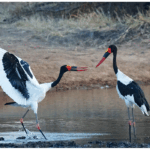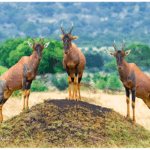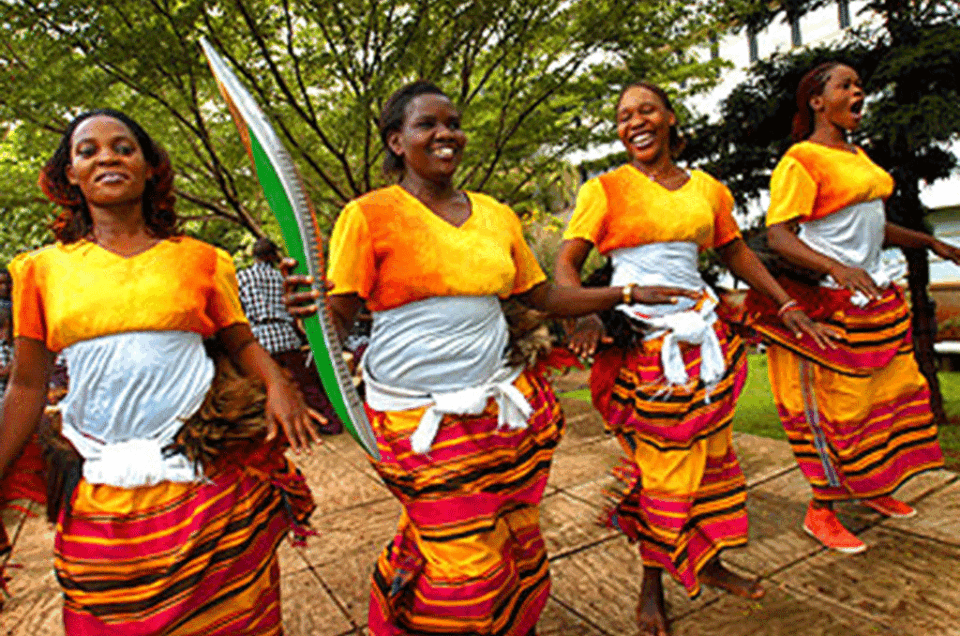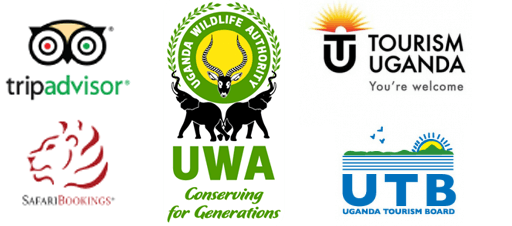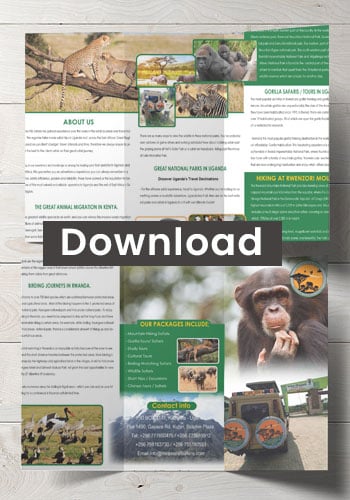The Baganda Tribe of Uganda; The largest ethnic group in Uganda is the Baganda. Baganda People origin makes up 18% of the population. The Baganda belong to the Bantu ethnic family and likely settled in the area between 1000 and 500 AD with the Bantu migration out of West Africa. The traditional language of this group is Luganda. The Baganda are led by a king, or Kabaka, who is considered very important in their society. The current Kabaka of Buganda is Kabaka Ronald Muwenda Mutebi II.
Buganda was one of several small principalities founded by Bantu-speaking people in Uganda. It was founded in the late 14th century, when the kabaka, or ruler, of the Ganda people came to exercise strong centralized control over his domains, called Buganda. The Baganda are believed to have migrated to Uganda from the southwestern part of Africa thousands of years ago. They were a dominant power in the region at the time of European contact.
The Baganda have a monarchy system of governance with a King, known as the Kabaka, who is considered the spiritual and cultural leader of the tribe. The Kabaka plays a vital role in the Baganda culture, and his coronation is a significant event that is celebrated with a lot of pomp and ceremony.
The Buganda parliament, Buganda tribe has its owns parliament led by speaker Owekitibwa Luwaga Mugumbule and the ministers serving under the Prime minister Charles Peter Mayiga. Like the central government Buganda kingdom has ministers such as for healthy, youth, Education, finance, games and spots among others.
The Baganda people are also known for their rich music and dance culture. The Ndere Cultural Troupe is a well-known dance group that promotes and preserves the Baganda cultural heritage through music and dance performances. The group performs at different events in Uganda and internationally, showcasing the beauty and diversity of Baganda culture.
Traditional Baganda attire is also an essential aspect of their culture. Men wear a Kanzu, which is a long white robe, while women wear a Gomesi, which is a colorful dress that covers the entire body. The Gomesi is usually made from silk, and it is accessorized with a sash and a headscarf. The Baganda are known for their traditional dances, including Bakisimba, Muwogola, and Nankasa. They also have many folk songs about food, alcohol, fishing, death, women, and children
The Baganda people are also famous for their love of sports, especially soccer. They have produced many talented soccer players who have played for the Ugandan national team and other teams in Africa and Europe. The Baganda also have their traditional sports, such as maweeto and lutakyanga, which are played during cultural events and festivals.
The Baganda has a unique cuisine that is characterized by the use of plantains, cassava, beans, and yams. Matooke, which is steamed and mashed plantains, is a staple food in the Baganda diet. It is usually served with different stews, such as groundnut stew or beef stew and the most delicious food is Luwombo. Other popular Baganda dishes include cassava bread, roasted meat, and bean soup.
The Baganda tribe of Uganda has a rich cultural heritage that is deeply rooted in their history and traditions. Their monarchy system of governance, music and dance culture, traditional attire, love of sports, and unique cuisine are all integral parts of their identity. As Uganda continues to develop and modernize, it is essential to preserve and promote the Baganda cultural heritage to ensure that future generations can appreciate and celebrate its rich cultural heritage.
The Baganda are traditionally made up of 52 clans, but only 46 are officially recognized. The clans were the where includes; Koobe, Ffumbe, Mutima, Lugave, Ngabi, Ngonge, Ntalaganya, Njaza, Nyonyi, Mbogo, Mpologoma, Mamba, Njovu and so many other clans which make Baganda tribe. There is a significant Baganda Diaspora abroad, with organized communities in Canada, South Africa, Sweden, the United Kingdom, and the United States.
